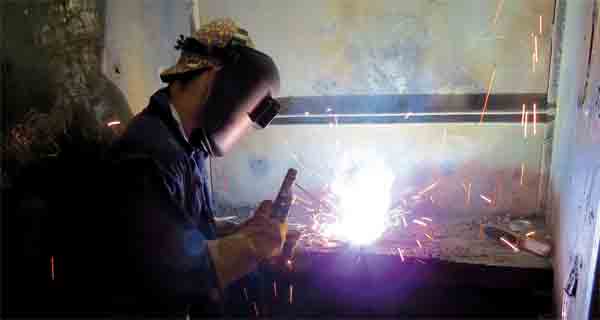Building a workforce
Published 2:00 am Saturday, April 13, 2013

Building a ready-to-work workforce is the job for educators and trainers around the country — if we want people ready to fill jobs being created in growing industries.
The Escambia-Brewton Career Technical Center is one institution that is tackling the job of educating and training high school students in career paths that should put them in a good position to land lucrative positions in the future.
David Lanier, principal at EBCTC, said many of the courses offered at the center are part of a growing industry that will continue to require a larger, technically skilled workforce.
“All of our programs here are certifiable courses,” Lanier said. “Students who do well can be nationally certified in their fields. They have to meet certain standards to be able to take the test, but the certification can only help them achieve success in their job search.”
Students from Flomaton, T.R. Miller and W.S. Neal high schools attend the Center and have a choice of several career fields to study, Lanier said.
“We have choices for career paths to fit just about any student,” Lanier said. “Whether they plan to attend a four-year university or not, these technical courses will be of great benefit at some point in their future.”
Classes offered at EBCTC include welding, building construction, business technology, health sciences, education and training, masonry, automotive and forestry/horticulture.
“Several of the program here offer students a chance at training that could lead to much bigger things for them,” Lanier said. “Our most employable courses are the building construction, welding, masonry, business technology and health sciences.”
In addition to the on-campus offerings at EBCTC, Lanier said an agreement with other technical courses on a college level give students more opportunities for success.
“We have an articulation agreement with Jefferson Davis Community College with some programs,” Lanier said. “Right now, we have about 10 students attending a dual-enrollment program at JD to help them earn a certificate in a technical trade.”
Those technical courses — on high school and college levels — will help create a workforce ready to take on the duties at businesses like the Airbus, Brooks Peanut Company and other industries up-starting and expanding in our region.
In addition to highly qualified instructors for each of the programs at EBCTC, Lanier said business and industry leaders are a big part of the curriculum planning at the Center.
“Each of our instructors has an advisory committee of business and industry leaders in the field they teach,” Lanier said. “We meet with them twice a year to determine what their needs are in the industry and what we can do to teach the students how to best meet those needs.”
Although Lanier said business leaders say students are on the right track with training, there are areas that need work.
“We have all the latest equipment to work with our students and every instructor here is up-to-date with the latest information and ready to teach,” Lanier said. “But, through the meetings with the advisory group members, we are hearing that people skills are the biggest hurdles we have to face with the students.”
Lanier said a students’ ability to positively present their qualifications and personality during an interview seems to be the biggest issue.
“Through learning from those advisors where issues are, we can better lead those students,” Lanier said. “We have made progress in working with the students in teaching them how to conduct themselves during interviews and how to review their own qualifications. Helping them learn how to prepare to land the job is as important to us as it is to teach them how to do the job. We’re here to prepare our students for a career from start to finish.”





